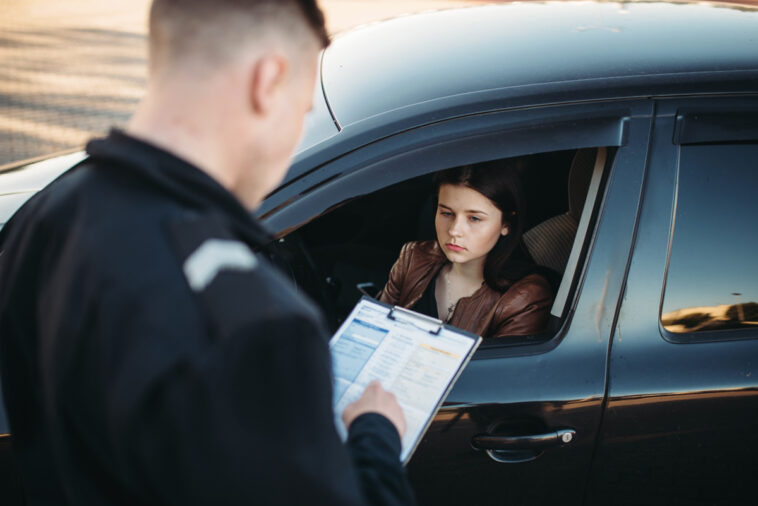You see the lights, you hear the siren and you know you’re being pulled over by the police. What should you do?
First, immediately pull to the right side of the road where it’s safe to do so. If the roadway is congested, consider pulling into the nearest commercial parking lot. More than likely, the officer has observed you committing a moving traffic infraction or a non-moving infraction, such as expired tag or faulty equipment. Moving violations include speeding, running a red light or stop sign and failing to yield, among others.
While the officer might be wrong in their assessment, now isn’t the time to argue. Before the officer approaches your car, collect your driver’s license, vehicle registration and proof of insurance. Keep your insurance information and registration in one location so you can retrieve it quickly and easily.
As the officer approaches your car, make sure your hands are in plain sight, preferably on the steering wheel. When the officer speaks to you, if you still need to get your documents, let the officer know where they’re located and that you’re reaching for them. Understandably, it would be in your best interest to let the officer know whether or not there is a firearm or other weapon where the documents are located so they don’t see it unexpectedly.
The officer is likely to explain the reason for pulling you over. Although you are not technically under arrest at this point, you are detained and you have constitutional rights against self-incrimination. Be careful making comments such as, “I’m sorry, I was texting and didn’t pay attention” or “I know I was speeding, but I didn’t know I was going that fast!”
These statements will be documented and used in traffic court if you contest the citation. If the officer is clearly wrong in their assessment and you can demonstrate that by documentation or otherwise, try explaining your position. Otherwise, remain silent and wait for traffic court to show the traffic magistrate and request a dismissal. If you encounter resistance or argument from the officer, stop speaking and accept and sign the citation. You have 30 days to request a court hearing to explain yourself in court.
Moving violations carry high monetary penalties, up to $1,000 and points against your driver’s license that can result in suspension. Non-moving violations generally carry smaller fines that can be dramatically reduced if you correct the violation. For example, if you were cited for not carrying your registration or insurance card, you can present this documentation to the clerk of court and have it dismissed for a small administrative fee. Similarly, if you were cited for faulty equipment, and you make the repair, you may also show that evidence to a law enforcement officer, who can sign off on the citation for you to bring to the clerk for dismissal.
As a former traffic law enforcement officer with the Florida Highway Patrol and the Orlando Police Department, I will use this knowledge to help you if you have been charged with a traffic offense.

